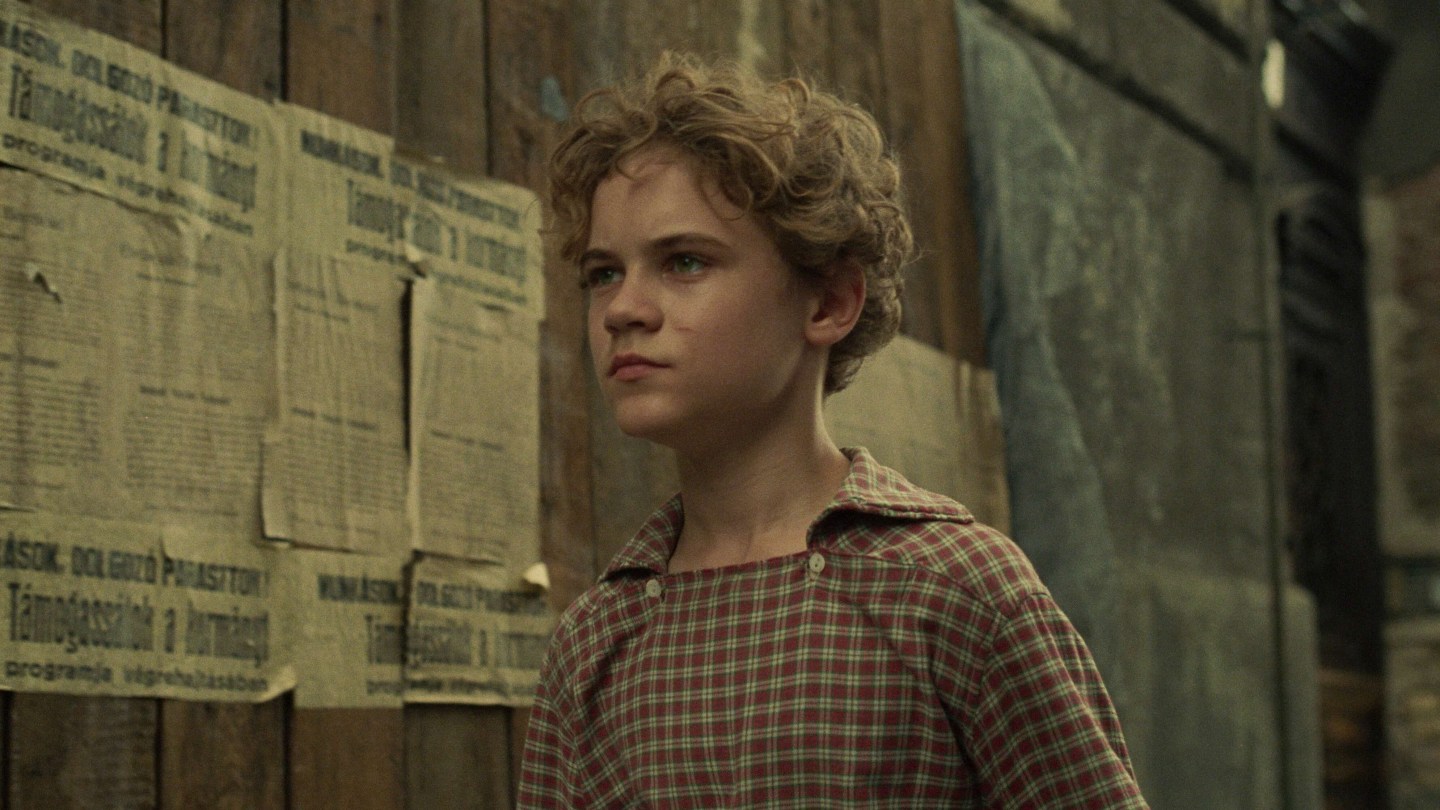The rippling fallout of war on families has long been fertile ground for cinema — trauma is calcified while secrets from the past become myths, either perpetuated long enough to solidify into fact or exposed as falsehoods that cause entire identities to be questioned. The latter is the case in Orphan (Árva), the meticulously crafted though narratively uneven third feature from László Nemes, whose shattering debut, Son of Saul, was a 2016 Oscar winner. Bouncing back seven years after the barely penetrable Sunset, the Hungarian director’s new film takes its time to kick in but is a uniquely personal coming-of-age drama.
Taking direct inspiration from his father’s difficult childhood in 1950s Budapest, Nemes struggles to maintain fluidity or momentum in his storytelling and the movie often seems a slog in its first half. But the filmmaker clearly feels the core of the drama in his bones, which goes some distance toward masking its weaknesses.
Orphan
The Bottom Line
Meanders too much, but finally delivers a sting.
Venue: Venice Film Festival (Competition)
Cast: Bojtorján Barabás, Andrea Waskovics, Grégory Gadebois, Elíz Szabó, Soma Sándor, Hermina Fátyol, Konrád Quintus, Géza Perlmann, Marcin Czarnik, Tibor Martin Lobbert
Director: László Nemes
Screenwriters: László Nemes, Clara Royer
2 hours 12 minutes
Though the setting is specifically Central Europe post-World War II, the observation of families fractured by armed conflict and the lingering effect on survivors could apply to any number of wars in the decades since.
The evocation of a time and place is striking, every setup and framing choice precise and purposeful — at times to a prettified fault. Working as usual with cinematographer Mátyás Erdély, Nemes shot the film on 35mm, returning to the tight Academy ratio they used in Son of Saul. While Orphan is not as aesthetically formal, its grainy textures and desaturated colors combine with the narrowed visual field to channel the perspective of a 12-year-old boy both confused by and angry with the world around him.
Nemes and regular co-writer Clara Royer start with a prologue four years after the war when young Jewish boy Andor (played at that age by Tibor Martin Lobbert) is retrieved by his mother Klára (Andrea Waskovics) from the orphanage where he was placed as an infant. He is told he’s one of the lucky ones, but he’s slow to trust his mother after their prolonged separation. Andor asks when his father will be returning, but that’s an unanswerable question, as it is for most children whose parents were sent to camps during the Holocaust.
The action jumps ahead to 1957, the year after the attempted uprising against the Communist regime was crushed by the Soviet army. Antisemitism remains rife, with Jews regularly harassed by both law enforcement and civilians.
Preteen Andor (Bojtorján Barabás) is growing into a tough, scrappy kid with a rebellious streak. He yearns for information about his father — according to Klára a gentle-natured man who ran the nearby Yiddish theater box office. Andor saves a box of old tickets as if they were treasures and sneaks off to the basement to speak aloud to his absent father, his reverence almost sacred.
Klára works at a grocery store formerly owned by the family of her colleague Elza (Hermina Fátyol) but now taken over by a supercilious Stalinist (Konrád Quintus) who doesn’t bother hiding his disdain for the two Jewish women. Elza’s daughter Sári (Elíz Szabó) is Andor’s closest friend, and in a Jewish community where adult men are either disappeared or damaged beyond repair, her older brother Tamás (Soma Sándor) is forced to hide out from the authorities. When Andor finds a gun buried under rocks, he gives it to Tamás but will come back later to claim it.
The first time Andor sees a burly man on a motorcycle with sidecar outside their apartment block eyeing his mother, he suspects they are being watched by a cop. But it soon emerges that the stranger is Berend Mihály (Grégory Gadebois), a butcher who sheltered Klára in the countryside after her husband was deported, when she was pregnant and needed to stay in hiding.
Klára tries to keep him away but Berend, a sweaty, sour beast of a man who wears a permanent scowl, insistently shoves his way into the household. Andor hates him on sight, which only intensifies when Berend smacks around his mother and tears up the apartment looking for proof that Klára has deceived the boy with idealized fictions about his origins.
It’s from this point that the story carries the most thematic heft, as Andor slowly comes to terms — or doesn’t — with who he is and the darkness inside him. The script deserves credit, as does the actor, for bringing some nuance to Berend, who seems genuinely to want to construct a family despite his rage issues. In some ways, he’s a more multidimensional character than Andor, whose festering resentment makes Barabás seem a bit one-note in the role.
In what could almost be a nod to the Vienna Prater scene in The Third Man, the movie’s final act features a Ferris wheel that dangles Andor up high while he decides whether to accept his new reality or keep fighting it. Nemes leaves that question sufficiently open to be interesting.
His closing shot is a twinkling funfair diorama with what looks like a cardboard crescent moon, a disconcertingly beautiful image with which to cap an account of traumatic upheaval in his father’s young life. Strangely enough though, the pathos resonates.

